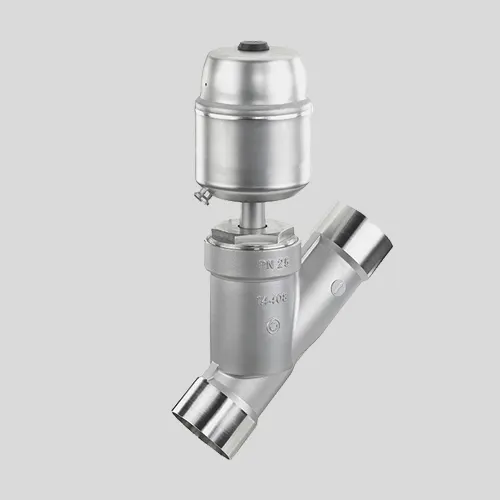A pneumatic angle piston valve is a type of valve that is used to control the flow of compressed air in pneumatic systems. This valve is operated by a piston that is connected to a pneumatic actuator. When air is applied to the actuator, the piston moves and opens or closes the valve.
One of the benefits of using a pneumatic angle piston valve is its flexibility in terms of options. These valves come in a variety of sizes, materials, and configurations to meet the needs of different applications.
Size: Pneumatic angle piston valves come in a range of sizes, from small valves that are just a few inches in length to large valves that are several feet long. The size of the valve you choose will depend on the size of your pneumatic system and the flow rate of the air you need to control.
Material: Pneumatic angle piston valves can be made from a variety of materials, including brass, stainless steel, and plastic. The material you choose will depend on the environment in which the valve will be used. For example, if the valve will be exposed to corrosive chemicals, you may need a valve made from a corrosion-resistant material.
Configuration: Pneumatic angle piston valves can be configured in a variety of ways, including two-way, three-way, and four-way valves. Two-way valves control the flow of air in one direction, while three-way valves control the flow of air in two directions. Four-way valves control the flow of air in two directions and also have an exhaust port.
Overall, the flexibility of pneumatic angle piston valves makes them a popular choice for controlling the flow of compressed air in a wide range of applications.
